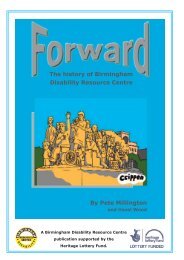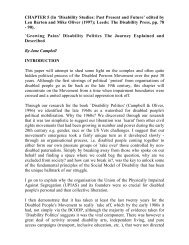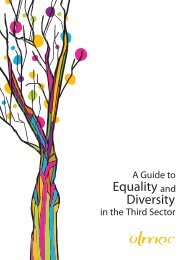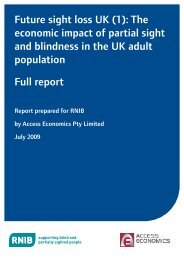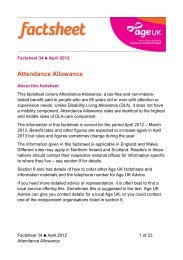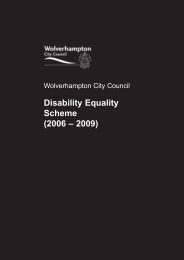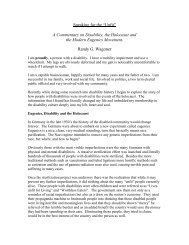What equality law means - Birmingham Disability Resource Centre
What equality law means - Birmingham Disability Resource Centre
What equality law means - Birmingham Disability Resource Centre
Create successful ePaper yourself
Turn your PDF publications into a flip-book with our unique Google optimized e-Paper software.
If a person brings a claim after this, it is up to the Employment Tribunal to decide whether<br />
it is fair to everyone concerned, including both the employer and the employee, to allow a<br />
claim to be brought later than this.<br />
When a claim concerns behaviour over a length of time, the time limit starts when the<br />
behaviour has ended.<br />
If the person is complaining about a failure to do something, for example, a failure to make<br />
reasonable adjustments, then the three months begins when the decision was made not<br />
to do it. If there is no solid evidence of a decision, then the decision is assumed to have<br />
been made either:<br />
• when the person who failed to do the thing does something else which shows they<br />
don’t intend to do it, or<br />
• at the end of the time when they might reasonably have been expected to do the thing.<br />
For example:<br />
A visually impaired job applicant hears about a job and asks the employer to send<br />
the application pack recorded on an audio tape. The employer does not refuse to do<br />
this, but just doesn’t get around to doing it. Once the closing date for applications has<br />
passed, the employer clearly does not intend to send the tape. The applicant should<br />
probably count the three months from the day before the closing date, which is the<br />
past day when the employer could have ensured the tape got to the applicant in time<br />
to apply.<br />
A tribunal can hear a claim if it is brought outside the time limit if the tribunal thinks that it<br />
would be ‘just and equitable’ (fair to both sides) for it to do this.<br />
The standard and burden of proof<br />
The standard of proof in discrimination cases is the usual one in civil (non-criminal) cases.<br />
Each side must try to prove the facts of their case are true on the balance of probabilities,<br />
in other words, that it is more likely than not in the view of the tribunal that their version of<br />
events is true.<br />
If a job applicant is claiming un<strong>law</strong>ful discrimination, harassment or victimisation against<br />
you, then the burden of proof begins with them. There are two situations in which the<br />
burden of proof will shift onto you:<br />
1. If they prove enough facts from which the tribunal can decide, without any other<br />
explanation, that the discrimination, harassment or victimisation has taken place, or<br />
74




